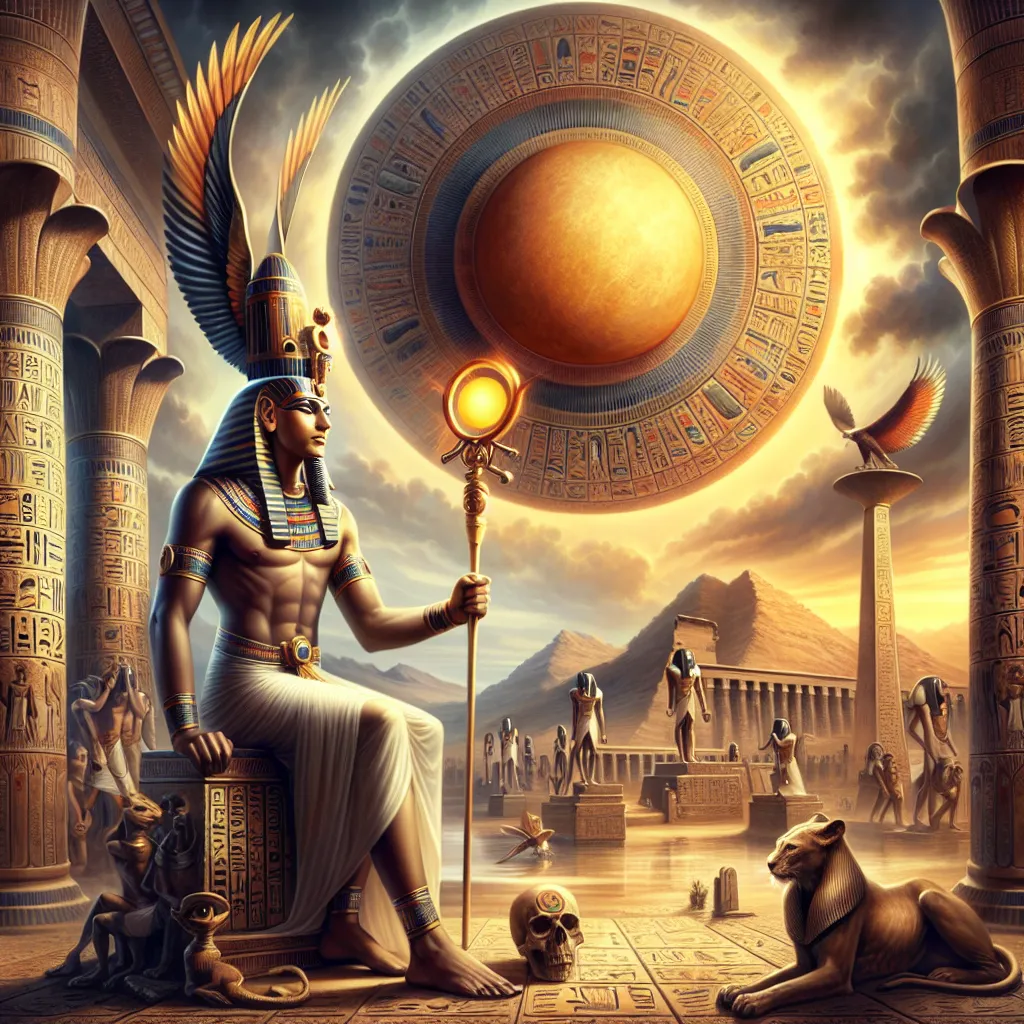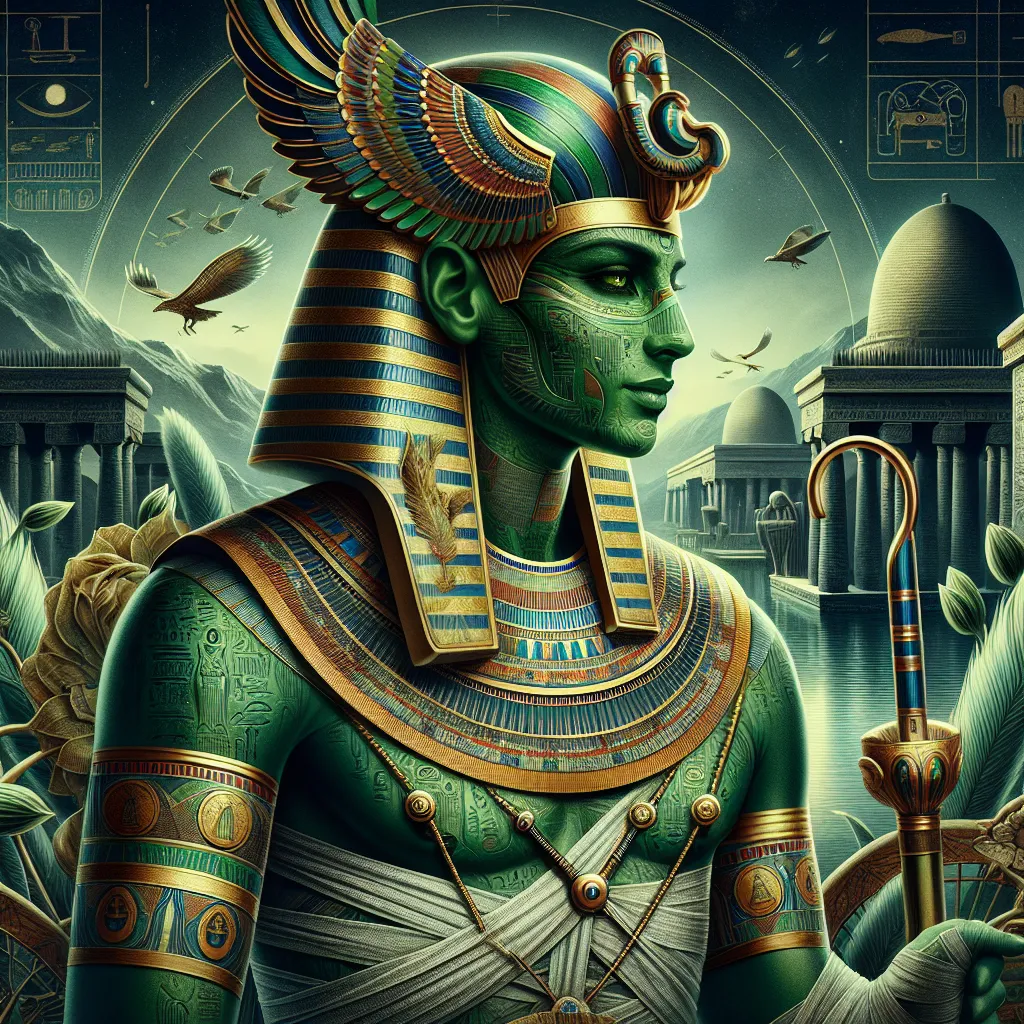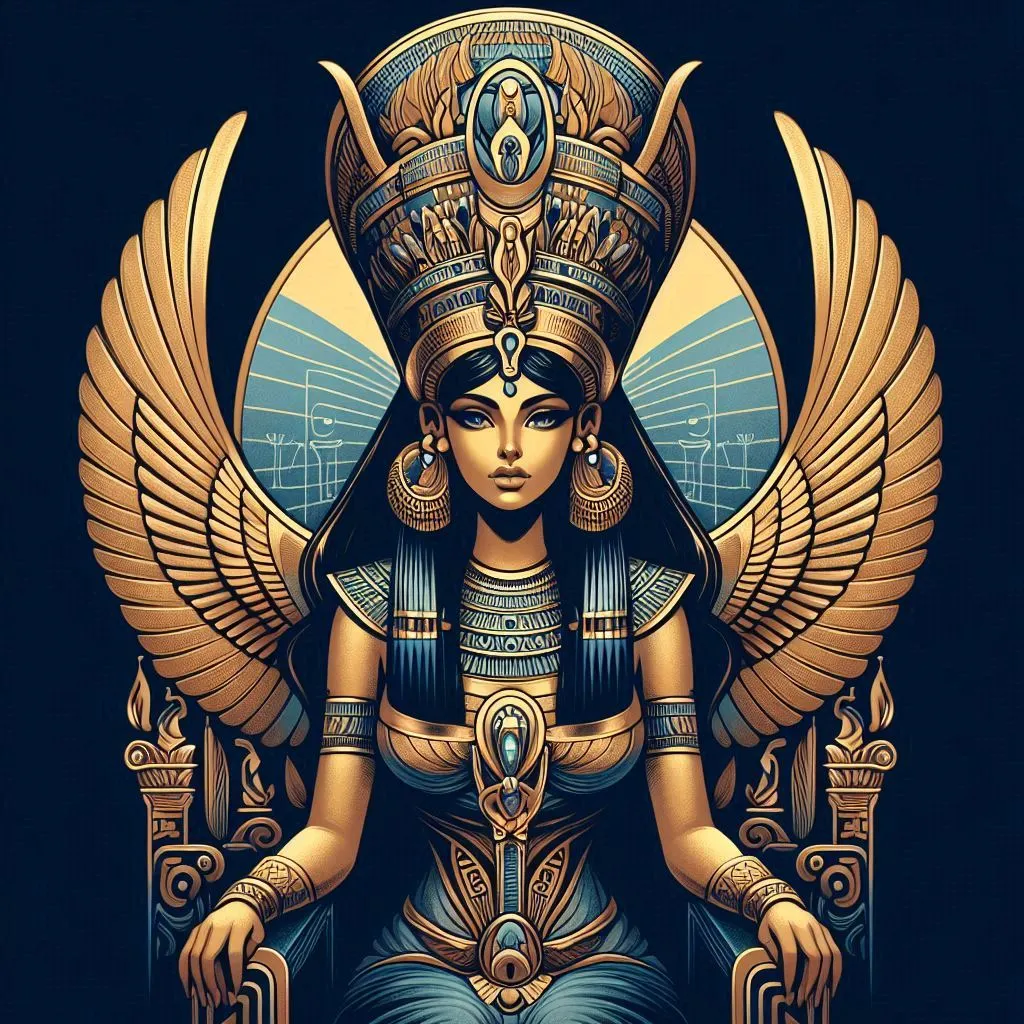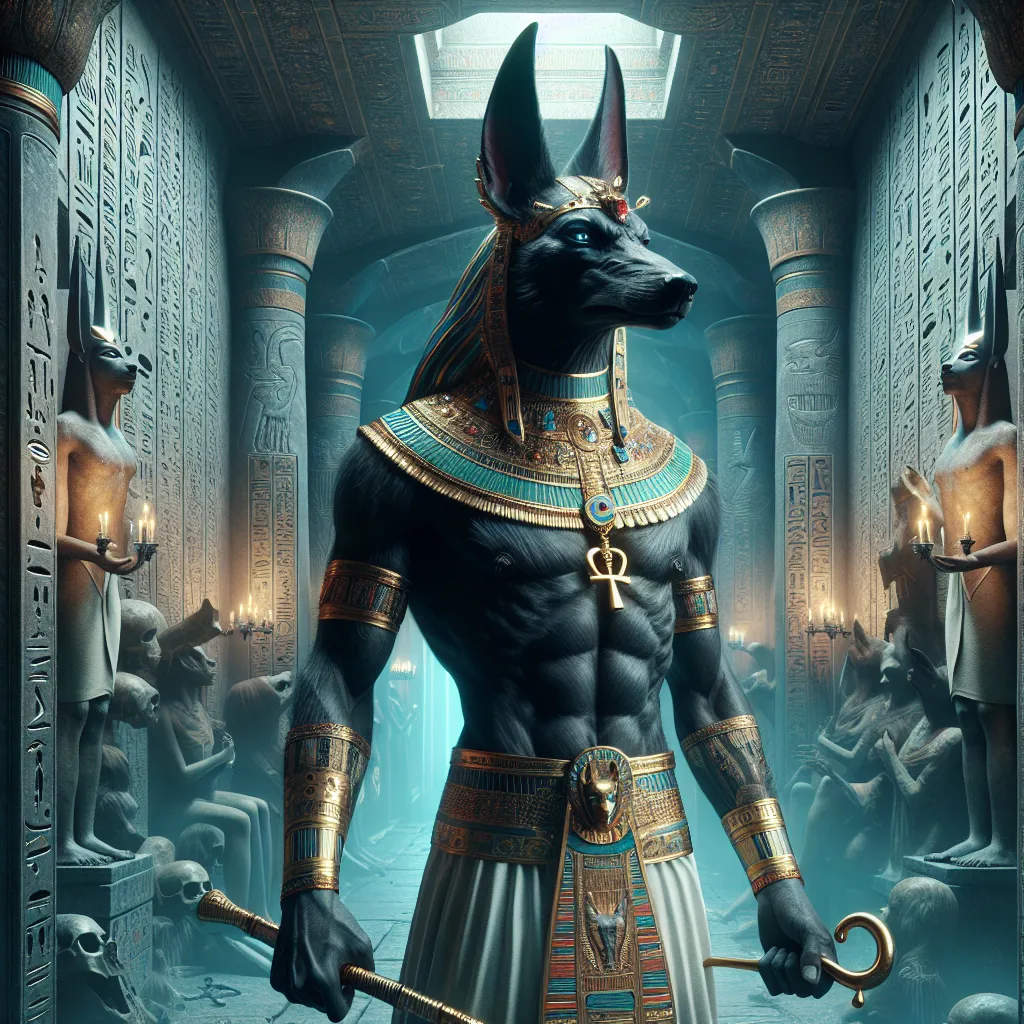Exploring Ancient Egyptian Mythology
Ancient Egyptian Mythology
Introduction
Ancient Egyptian mythology is a rich tapestry of gods, goddesses, and mythological tales that played a central role in the daily lives and spiritual beliefs of the ancient Egyptians. This mythology offers insights into their understanding of the cosmos, the afterlife, and the forces of nature.
Major Deities
Ancient Egypt had a complex pantheon of gods and goddesses, each associated with specific aspects of life and the universe:
- Ra: The sun god, considered the king of the gods and the creator of the world. He traveled through the sky during the day and the underworld at night.
- Osiris: The god of the afterlife, resurrection, and agriculture. He was murdered by his brother Set and resurrected by his wife, Isis.
- Isis: The goddess of magic, motherhood, and fertility. She played a key role in the resurrection of Osiris and was a protector of the dead.
- Horus: The falcon-headed god of the sky, war, and kingship. He avenged his father Osiris’s death and became the ruler of Egypt.
- Anubis: The jackal-headed god of mummification and the afterlife, responsible for guiding souls to the afterlife and weighing their hearts.
- Thoth: The ibis-headed god of writing, knowledge, and wisdom. He was believed to have invented writing and maintained the universe’s balance.
Creation Myths
Egyptian creation myths explain the origins of the world and the gods:
- The Heliopolitan Creation Myth: Atum, the primordial god, emerged from the chaos waters of Nun. He created the gods Shu (air) and Tefnut (moisture), who then gave birth to Geb (earth) and Nut (sky). Geb and Nut’s children included Osiris, Isis, Set, and Nephthys.
- The Memphite Creation Myth: Ptah, the god of craftsmen, created the world through his thoughts and words. He envisioned the world and spoke it into existence, including all gods and living beings.
The Afterlife and Mummification
The ancient Egyptians believed in a complex afterlife, where the deceased’s soul would journey to the Field of Reeds, a paradise-like realm:
- Mummification: To ensure a safe journey to the afterlife, the Egyptians practiced mummification. This process preserved the body, which was believed to house the soul.
- Book of the Dead: A collection of spells and incantations that guided the deceased through the underworld. It included the weighing of the heart ceremony, where Anubis would weigh the deceased’s heart against the feather of Ma’at (truth and justice).
Mythological Tales
Ancient Egyptian mythology is rich with stories that convey moral lessons and explain natural phenomena:
- The Contendings of Horus and Set: This myth describes the struggle between Horus and Set for the throne of Egypt after Osiris’s death. The story highlights themes of justice, legitimacy, and the triumph of good over evil.
- The Destruction of Mankind: Ra, angered by humanity’s disobedience, sends the goddess Sekhmet to punish them. However, Ra eventually takes pity and stops Sekhmet by tricking her with beer dyed red to resemble blood.
Further Reading
For those interested in learning more about ancient Egyptian mythology, consider the following resources:
- Books:
- “The Complete Gods and Goddesses of Ancient Egypt” by Richard H. Wilkinson
- “Egyptian Myth: A Very Short Introduction” by Geraldine Pinch
- “The Egyptian Book of the Dead” translated by E.A. Wallis Budge
- Websites:
- Documentaries:
- “Egypt’s Great Pyramid: The New Evidence” (PBS)
- “Secrets of the Saqqara Tomb” (Netflix)
Images
 Description: Ra, the sun god, depicted with a sun disk above his head, symbolizing his role as the creator and sustainer of life.
Description: Ra, the sun god, depicted with a sun disk above his head, symbolizing his role as the creator and sustainer of life.
 Description: Osiris, the god of the afterlife and resurrection, often depicted with green skin and wrapped in mummy bandages.
Description: Osiris, the god of the afterlife and resurrection, often depicted with green skin and wrapped in mummy bandages.
 Description: Isis, the goddess of magic and motherhood, depicted with a throne-shaped crown, symbolizing her role as the mother of the pharaohs.
Description: Isis, the goddess of magic and motherhood, depicted with a throne-shaped crown, symbolizing her role as the mother of the pharaohs.
 Description: Anubis, the jackal-headed god of mummification and the afterlife, guiding souls through the underworld.
Description: Anubis, the jackal-headed god of mummification and the afterlife, guiding souls through the underworld.
Conclusion
Ancient Egyptian mythology offers a window into the beliefs, values, and worldviews of one of history’s most fascinating civilizations. By exploring their myths and deities, we gain a deeper appreciation for their contributions to human culture and their timeless quest for understanding the mysteries of life and death.